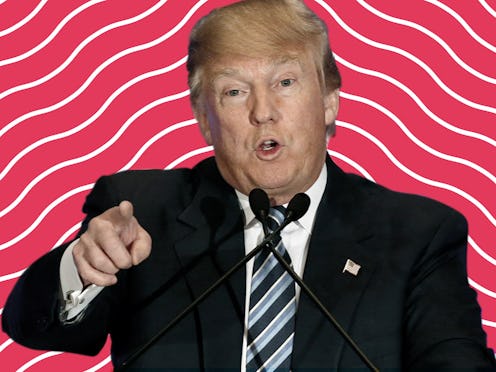News
Trump 2nd Amendment Remarks Signal Deeper Divide

Now, we're firmly in the territory of the Donald Trump presidential campaign where, though we might find his comments shocking, they are no longer surprising. On Tuesday, at a rally in North Carolina, Trump seemed to call for Second Amendment advocates to shoot Hillary Clinton. “Hillary wants to abolish, essentially abolish the Second Amendment,” the GOP nominee said. “By the way, if she gets to pick her judges, nothing you can do, folks. Although the Second Amendment people, maybe there is, I don’t know.”
The comment sent shockwaves through the political world, with strong reactions coming from the left and gibbering coming from the right. California Congressman Eric Swalwell called on the Secret Service to investigate Trump’s statement; the Secret Service simply replied via its Twitter account that “they were aware of the comments made earlier this afternoon.”
But while there’s plenty to lose one’s sh*t over when one presidential candidate appears to encourage violence against another, there’s a deeper, more upsetting takeaway from this latest instance of Trump’s foot not quite making it to his mouth fast enough: there is some significant portion of his followers who aren't wholly horrified by it. What should be nearly as alarming as the implications of Trump’s statement is the fact that he is not being roundly rejected by Republican politicians and voters alike. Among those who tried to explain away Trump’s comments was Republican Sen. Susan Collins, who declared she wasn’t voting for Trump on Monday.
But even if, for argument’s sake, we accept that Collins’ (and others’) rationalization of Trump’s words is correct — that he was speaking about the power of Second Amendment advocates' vote and not their firearms — how awful is it that we find ourselves in a political moment where a major party nominee can be thought by many to be promoting violence against his opponent and not required by his supporters to apologize? Sure, many Republicans are calling on Trump to apologize, as Rep. Peter King said he should on MSNBC's Morning Joe on Wednesday. But if Trump doesn't sufficiently apologize, shouldn't fellow Republicans be obligated to denounce him? Moreover, if Trump's comment was, indeed, an honest mistake, why not go show contrition?
Of course, apologizing and owning up to mistakes isn't what got Trump on the general election ticket. He got where he was by tapping into a powerful surge of anger in a plurality of Republican primary voters, and while there might not be enough of them to elect him president, the fact that there are a substantial number who are willing to cheer on (let alone tolerate) these attitudes should be more alarming than the words themselves.
Defeating Trump in November is the short-term goal, and it is an important one. Healing the deep rift between Trump’s America and the rest of us — that’s a longer endeavor, a more complicated one, but one that is infinitely more important to the long-term success of the American experiment.
Image: Bustle/Dawn Foster